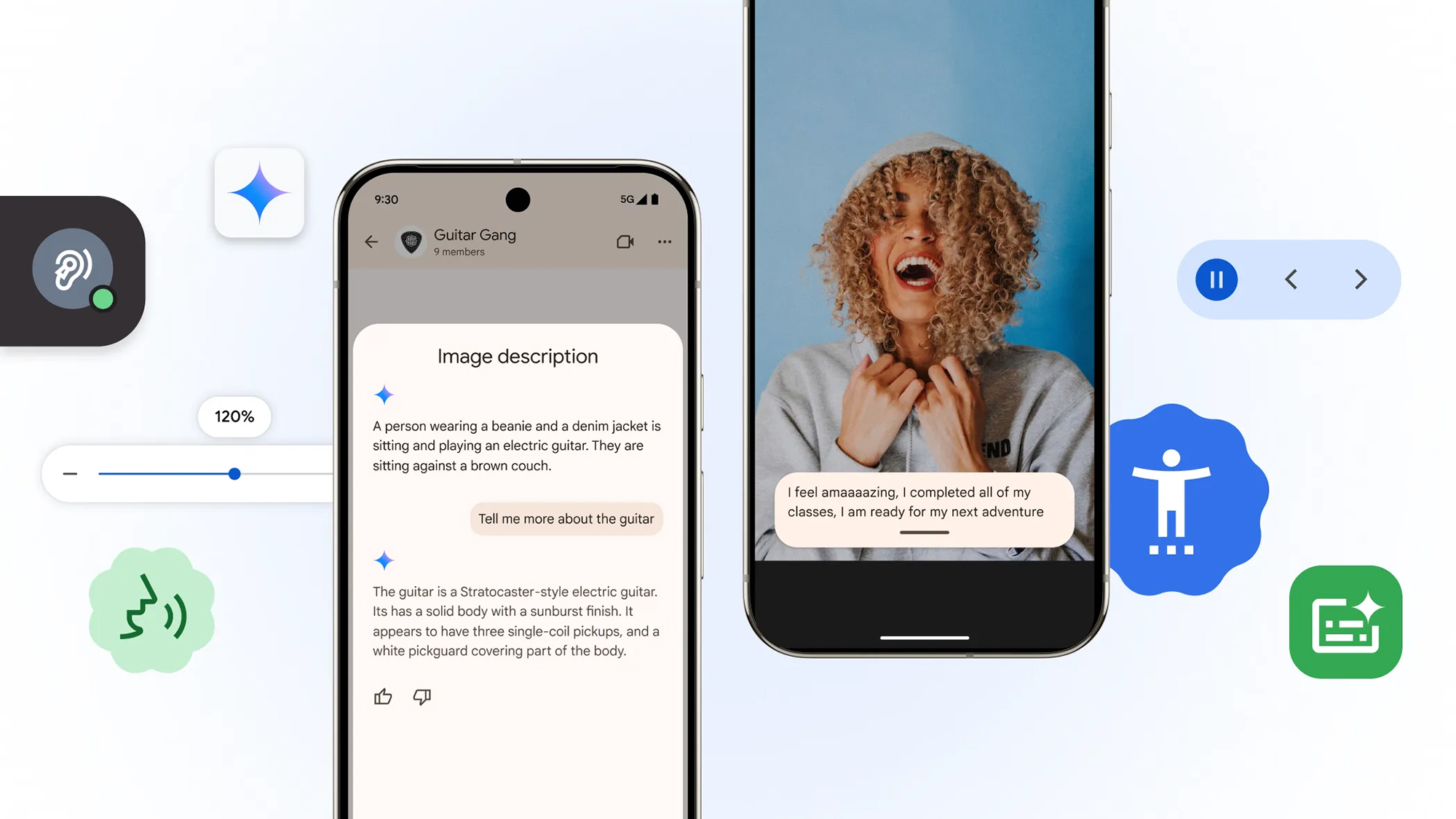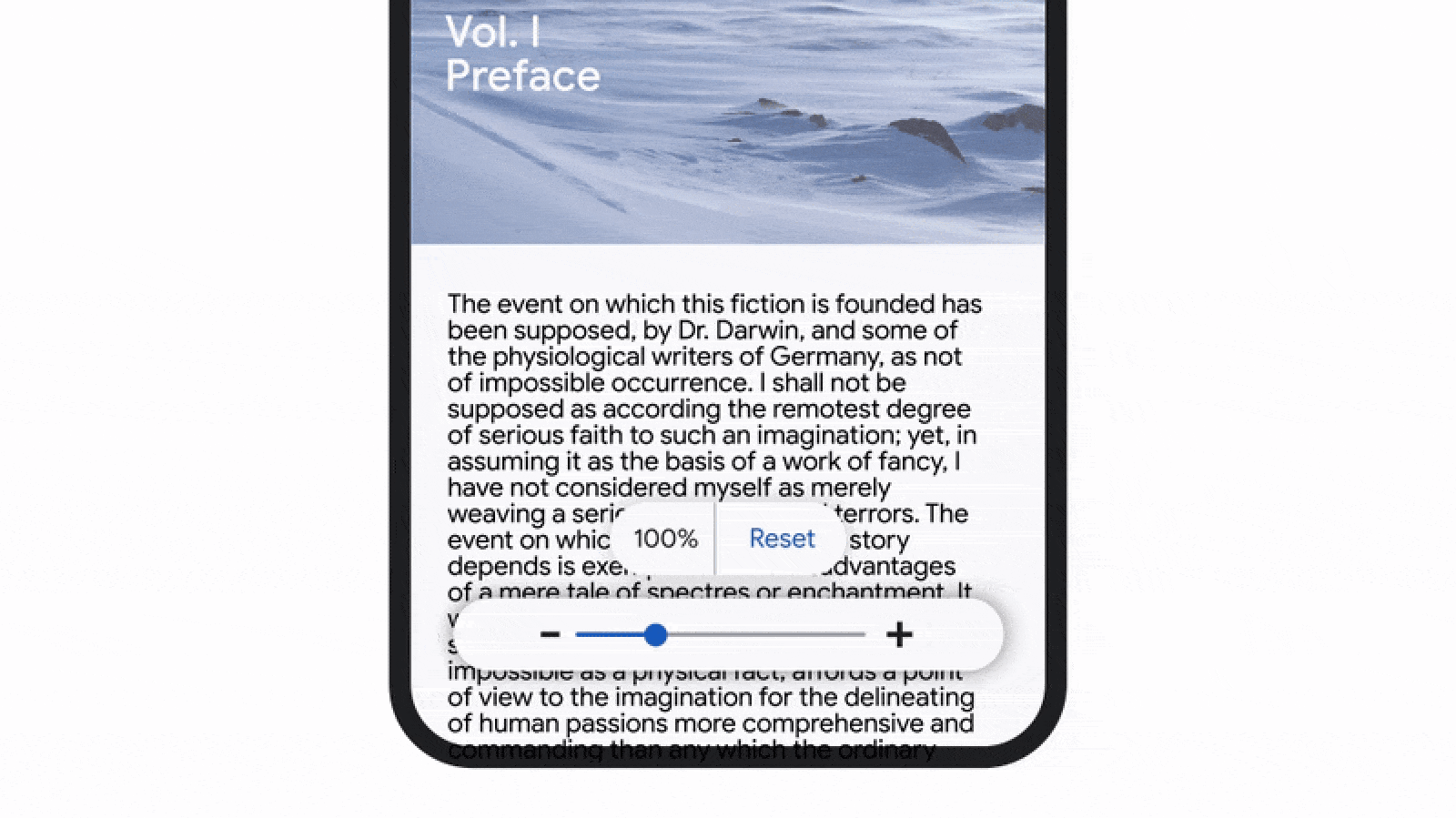Raising accessibility awareness

Google has some new accessibility features to talk about(Image credit: Google)
- Google has updates for Global Accessibility Awareness Day
- The new features cover Android and Google Chrome
- You can now ask Gemini questions about images on screen
We’ve already seen a bunch of updatesfor Apple productsin honor of Global Accessibility Awareness Day this week, and now it’s Google’s turn – with four important upgrades on the way to Android and Chrome.
As per the officialblog post, the TalkBack screen reader feature in Android is getting some extra smarts, on top of the existing Gemini-powered functionality. The feature provides image descriptions for blind and low-vision users, even when no alt text is provided.
Now, you’ll be able to ask Gemini follow-up questions about the image that’s showing on screen – so if you need to know what color something is, or what else is showing in the picture, Gemini will be able to help out.
There’s also an update to Expressive Captions, which provides on-screen subtitles for anything with audio on your phone. Those subtitles will now reflect drawn on words, so you’ll be able to tell the difference between “no” and “noooooooooo”, Google says.
>>>AA-PBQN4TR Battery for Samsung Galaxy Chromebook 2 XE530Q
Chrome and language support

Page Zoom in Android can now zoom on text only(Image credit: Google)
We’ve got some accessibility improvements to talk about with Google Chrome, too. First up, scanned PDFs are getting Optical Character Recognition (OCR), which means you’ll be able to search for text inside them, and copy that text somewhere else.
For Chrome on Android, Page Zoom (above) is adding a feature to let you increase the size of text on pages, without affecting anything else (like images or layouts). To set up the feature, tap the three dots (top right) in a tab, thenSettings > Accessibility.
Google is also improving speech recognition technologies around the world, giving developers more resources for non-standard speech patterns and non-English languages, as part of its ongoingProject Euphoriainitiative.
>>>C21N2003 Battery for Asus Chromebook Flip CM3 CM3200 CM3200FVA
Finally, a full suite of accessibility features are on the way to Google’s Bluebook app, which can be used as a testing platform. Upgrades for dictation and the screen reader tech should make the app more accessible than ever.